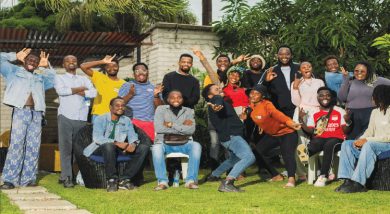Where are the writers?

Malawi’s creative writing scene might be diving into a deep ocean.
Like music, writing is seasonal, but Malawi seems to be writing a different chapter by not producing a new crop of fine creative writers.
In arts, the name that spins on the tongues is that of the artist of the moment.
In Malawi, names that still have significance in the creative writing sector are David Rubadiri, Willie Zingani, Edson Mpina, Ken Lipenga, Jack Mapanje, Felix M’nthali and James Ng’ombe, despite some of them putting down their pens decades ago.
This sad story shows itself on bookshop shelves where the majority of works are foreign. If it is Malawian, then it has to be one published over to two decades ago.
The same is appreciated in the country’s publications. Literary sections are packed with fictitious articles that sail below the standard bar.
In an creative writing critique published in UK’s Guardian newspaper, writer Rachel Cusk argues that “there is no autocratic way of assessing literature. The shared basis of language forbids it.”
However, there should be good and bad writing.
Within a space of four months, three sets of judges for different creative writing competitions—the Peer Gynt Literary award, Dede Kamkondo Memorial Poetry and FMB/Mawu Short Story Writing competitions, in their individual assessments of the competitions, described entries submitted as below standard.
Three winning manuscripts in the Peer Gynt, which were supposed to be have been published novels by now, had to be sent to creative writers for improvement before they are sent to international editors.
Something is amiss. In his overall assessment statement, chief jury of the FMB/Mawu Awards Jonathan Mbuna said most writers do not understand what creative writing is all about and why it is important in fiction writing.
Concurring with him is Mawu president Sambalikagwa Mvona who said something needs to be done.
However, what sparked debate was on what to blame for the poor quality of creative work.
The decay of creative writing in Malawi has been gradual as observed by ardent writer Stanley Onjezani Kenani who says he has seen how the publishing industry has ignored serious local writing and instead prefers to concentrate on the textbook market.
“Perhaps it makes business sense. You will recall that in the 80s and early 90s, we had the Malawi Writers Series which saw a number of writers published, the likes of Willie Zingani (Ndaziona Ine), Jolly Max Ntaba (Mtima Sukhuta), Steve Chimombo (The Basket Girl) and Tito Banda (The Bitter Disapproval). Dzuka also published a lot of writers such as Amaluzi: Ten Stories from Malawi, and The Haunting Wind, a poetry anthology,” observed Kenani.
For those who could not access the anthologies and novels, newspapers has been the second home to appreciate creative
writing, but Kenani said a lot is left to be appreciated in today’s publications.
“In those days, weekend papers and magazines used to give several pages to arts and fiction. In 1989, I remember reading a short story as a centrespread. Some writers could author stories in series which ran for weeks. We lost the passionate editors who would summon the writer and talk about the script or article, its strengths and weaknesses before suggesting on how to improve it,” said Kenani.
World famous writer David Rubadiri says he was put-off reading local materials because of the poor quality. Nonetheless, he believes Malawi can do well in creative writing but said the deliberate weakness of trying to be creative and challenging when working on the article is what is killing creative writing.
“There is deliberate laziness and we need to
be provocative to those aspiring writers and writing should never be taken lightly by any one,” said Rubadiri.
Educationist Steve Sharra, whose short story Fleeing the War won the 1995 British Council Write a Story Competition, believes the education system is a let-down in promoting creative writing. He mentioned the absence of literature subject in Malawi for some years.
Nevertheless, inclusion of the subject recently was a welcome idea, but the initiative is being ruined by the lack of textbooks in schools as confessed by one of the teachers who revealed that some MSCE students at his school sit for examinations without any access to the books at the school.
“There is poor availability of well-written literature by writers from Malawi and beyond. Our bookshop industry collapsed. The bulk of books stocked are for study purposes and some do not stock any Malawian fiction book. Malawi has potential writers in local languages and English, but writing does not pay well enough to allow writers to spend time developing good fiction.
“That is why we have lots of young people populating the fiction pages in newspapers and in competitions without the guidance of expert writers and good writing,” he said.
While commending steps taken by the Lilongwe group The Living Room which hosts reading sessions every Wednesday and the formation of the Story Club, Sharra says there is need for more writing competitions accompanied by more trainings and workshops.
Together with Kenani, the writers advise newspaper publishers not to tolerate below standard fiction articles and consider inviting specific writers for mentoring. They also think better pay might motivate writers and create competition. On education the two believes better and well stocked libraries supported by good curriculum can help build a good generation of creative writers. They also called for writing competitions with attractive prizes.





